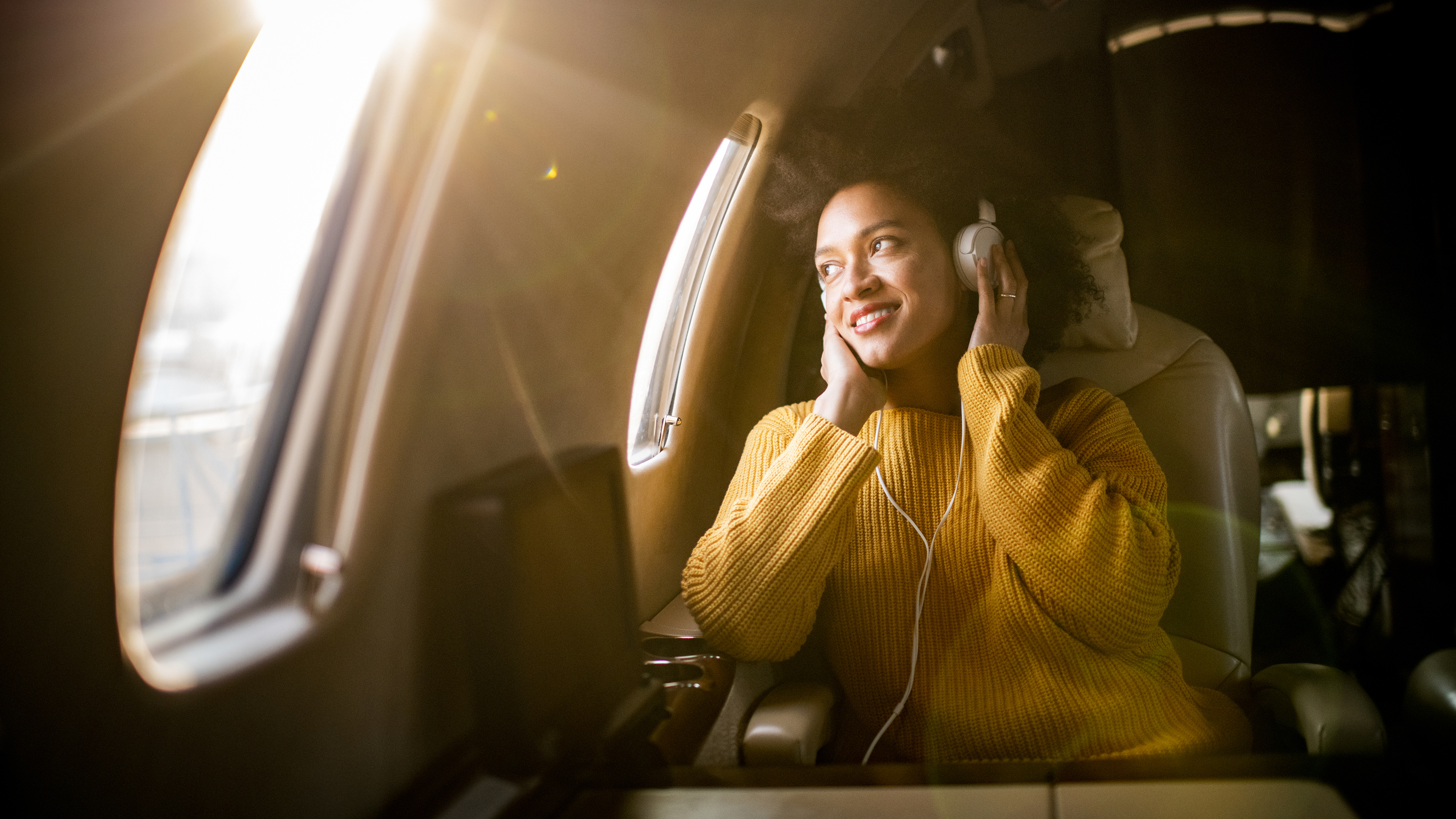Pilot reveals how to look and feel refreshed when flying
Want to arrive back from your summer holiday looking and feeling great? These tips will help...


Going on holiday has positives and negatives - while you're at your destination there's nothing better, you're relaxed, experiencing new things, and generally having a great time - unfortunately, that paradise is sandwiched between two potentially stressful flights.
Christine Cancar, pilot and optician at Feel Good Contacts undertakes on average six flights every weekend. Here she explains what she does to stay healthy on long and short haul flights, crossing various time zones.
She also offers 11 tips on what passengers should do to feel well on their flights, especially with low cabin pressure/humidity levels, recycled, dry air plus a lack of fresh oxygen, which can all take a toll on your mind and body.
Below are Christine Cancar's tips for travel:
1. Stay hydrated
The moment that passengers set foot on my plane, they get into the holiday spirit as they can finally switch off and begin their break. It’s easy to have a ‘keep them coming’ attitude when in business and first class. Whilst it is nice to treat yourself, I suggest that you limit your intake of alcohol, tea and coffee as this can be very dehydrating. When you arrive at your destination, the last thing you want to be is wide awake and in the mood for a party when the time difference means that its either very late at night or early in the morning.
I only drink water when on flights. Water helps to deal with a number of problems including dehydration, constipation and the disorientation experienced by jet lags. Drinking lots of water will encourage you to get off your seat and walk to the loo too, which can be beneficial.
2. Body
Being confined to a seat can take a toll on your body. On long haul flights, when it is safe to do so, you need to get up and move for five minutes every two hours. Look in your seat pocket for tips on seated and not seated stretches and exercises. Movement is important to prevent stiffness as well as more serious conditions like blood clots or deep vein thrombosis. Even simple movements like moving your feet up and down and side to side will help to boost your circulation.
Get all the latest news, reviews, deals and buying guides on gorgeous tech, home and active products from the T3 experts
3. Skin
To look presentable and professional for my pilot job I wear make-up but as a passenger, it is healthier to keep your face fresh, clean and make-up free for your journey as the make-up will clog your pores. Due to the dry, air-conditioned atmosphere on the plane, you should apply moisturizer on your face before boarding the flight and if it’s a long-haul flight then reapply moisturizer during the trip.
In addition to moisturizer, I keep a tiny pot of aloe vera or sudocrem to tackle blemishes and spots that appear as well as to soothe dry, itchy skin. This can sometimes be caused by wearing face masks. Currently, most airlines do not require you to wear one provided the destination that you are flying to does not have a mandate in place for passengers on inbound flights.
Did you know that aircraft windows don’t filter the sun’s damaging UV rays? So I use sunscreen to protect my skin. Even when I am not in direct sunlight, I am still exposed to these harmful UV rays.
4. Hands
As we are still dealing with Covid, I use anti-bacterial gel/wipes to keep my hands clean. On long haul flights, before passengers go to bed, they should apply hand cream on their hands to stave off the drying effects of the cabin pressure.
5. Eyes
The dry cabin atmosphere can make your eyes feel dry and uncomfortable, so I keep small single-use vials of hydrating eye drops to keep my eyes moist and in mint condition.
I wear contact lenses. If you are a contact lens wearer then I recommend that when flying, like me you wear silicone hydrogel daily lenses. These types of lenses allow six times more oxygen to reach the eye, meaning that they can be worn for an extended period of time and still feel comfortable. For convenience, I recommend that you opt for the daily disposable version of these lenses so that you don’t have to use a contact lens solution. I always keep a spare pair of these disposable lenses with me.
It’s important that you remove your lenses when you go to sleep so always keep a pair of prescription glasses in your hand luggage in case these are needed at short notice.
6. Meals
Before each flight, I have a light meal. It’s light because I want to feel both satisfied and comfortable when flying the plane. Whilst on your flight, I recommend that you do the same and not overeat. Opt for fruit and vegetables over heavy, high calorie meals. If I need a snack then I will eat a healthy protein bar.
7. Travel sickness
If you suffer from travel sickness then it is advisable that you don’t overeat and remember to take motion sickness tablets with you.
8. Dietary requirements
If you have food allergies or dietary restrictions, then you must notify the airline when booking your flight. It’s always good to remind cabin crew of your requirements when on the flight.
9. Clothing and footwear
My pilot uniform is made out of natural breathable fabric, its loose so that I can perform my job in comfort and stay focused without any unnecessary clothing related distractions.
I also wear flat, supportive shoes for safety purposes. I suggest that passengers wear comfortable shoes and clothes on the plane, they should avoid wearing high heels and wear layers as the air conditioning (which is permanently on) means that it can get cold in the cabin.
10. Sleep
With inflight interruptions and an upright seat, it can be difficult to sleep on a plane. Do ensure that you are well rested and not stressed out before you travel. To aid inflight sleep, bring an eye mask, ear plugs and a neck pillow. You should also avoid stimulants like tea, coffee and alcohol.
11. Finally….Jet lag
Jet lag can also take a toll on your mind and body. To acclimatize to the new time zone, you should do the following:
- Ensure that you are well rested before the flight
- Take a walk in daylight before the flight as natural light helps you to adjust
- Depending on the time zone that you are travelling to try to go to bed an hour earlier/later and get up an hour earlier/later. Start this routine about a week before your trip
- When boarding your flight, you should adjust the clock on your watch/phone to your new time zone. Some phones do this automatically
- Stay hydrated by drinking plenty of water

As the Style and Travel Editor at T3, Spencer covers everything from clothes to cars and watches to hotels. Everything that's cool, stylish, and interesting, basically. He's been a part of T3 for over seven years, and in that time covered every industry event known to man, from CES and MWC to the Geneva Motorshow and Baselworld. When he's driving up and down the country in search of the greatest driving roads, he can be found messing around on an electric scooter, playing with luxury watches, or testing the latest fragrances.